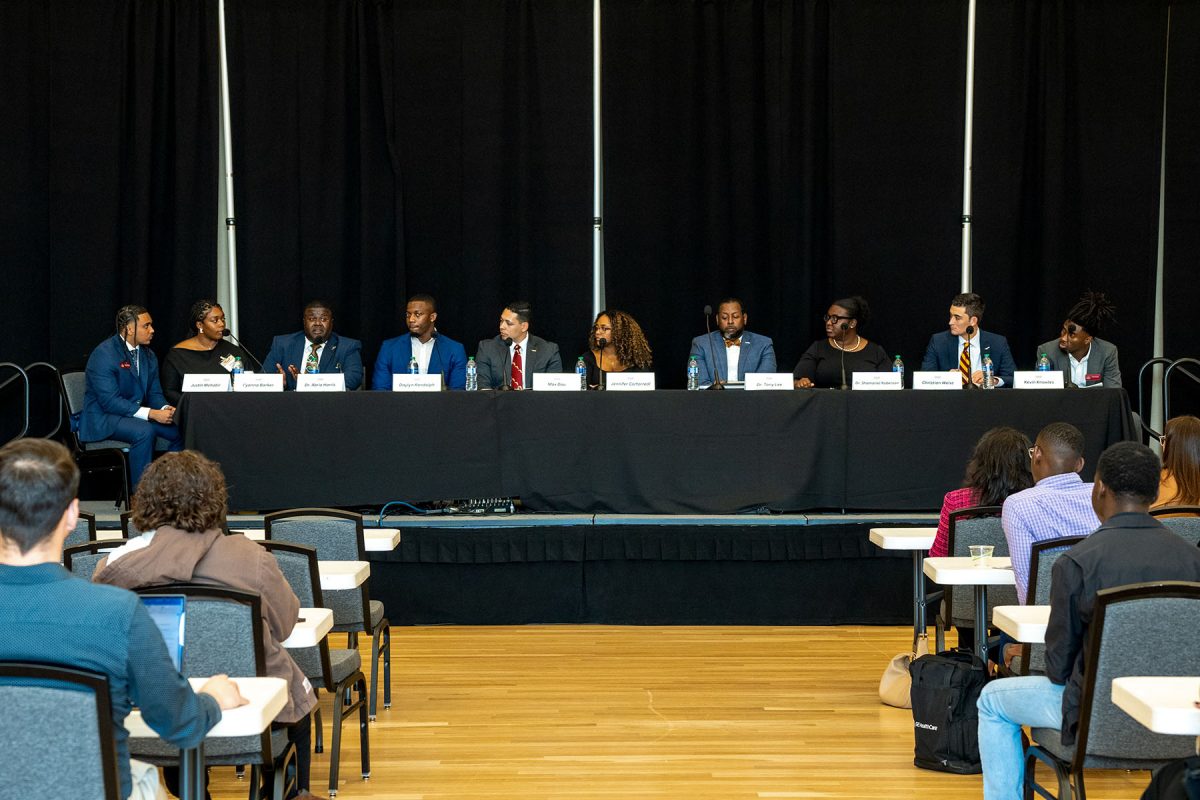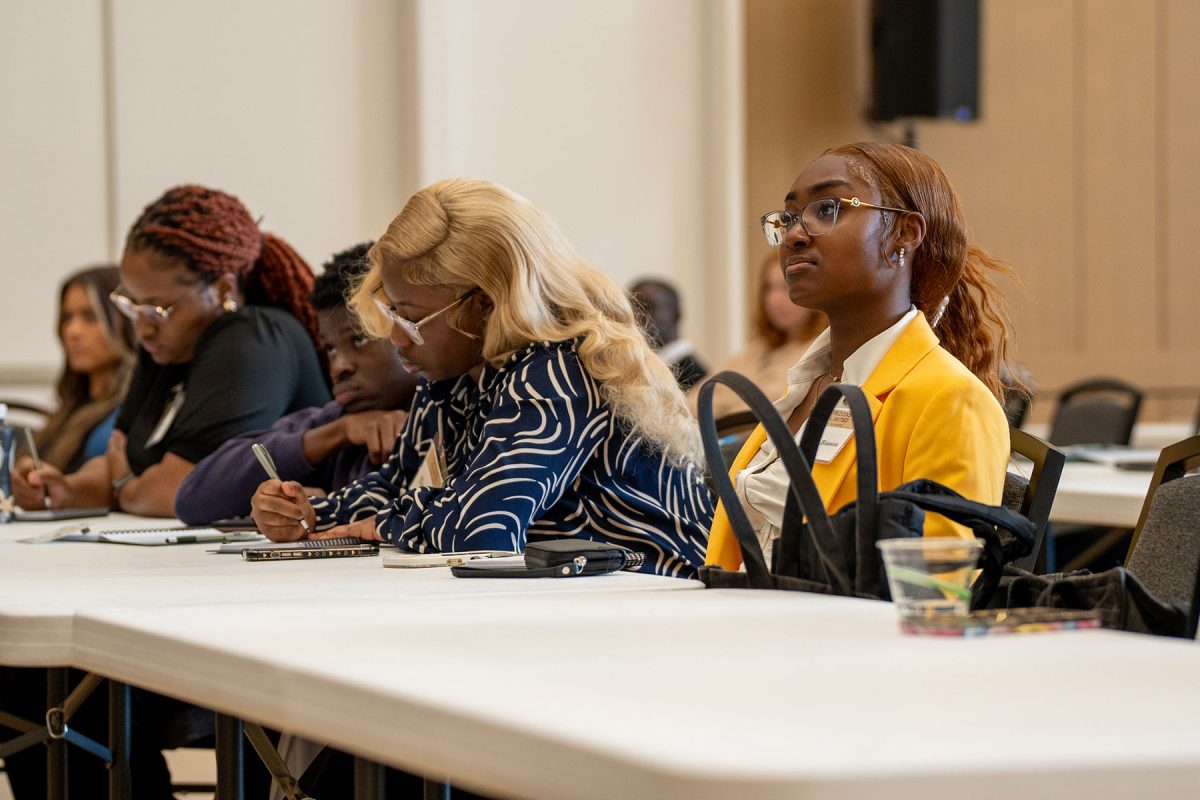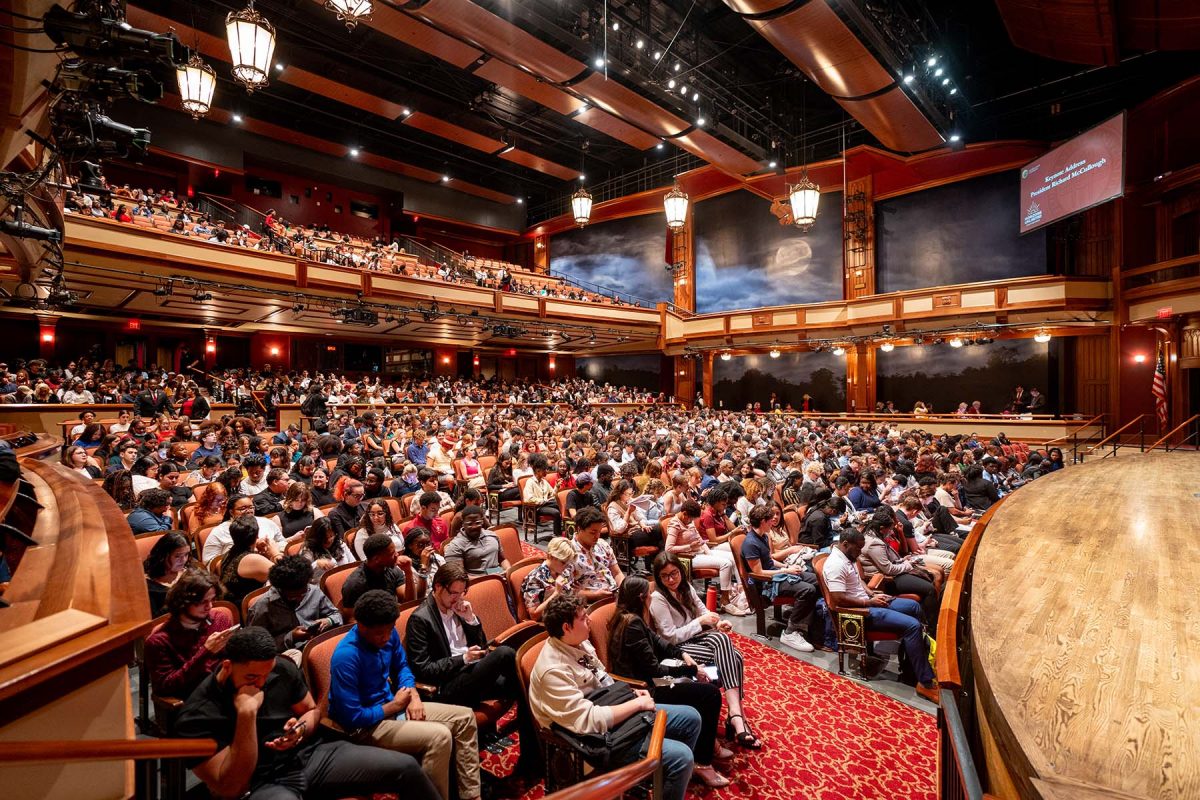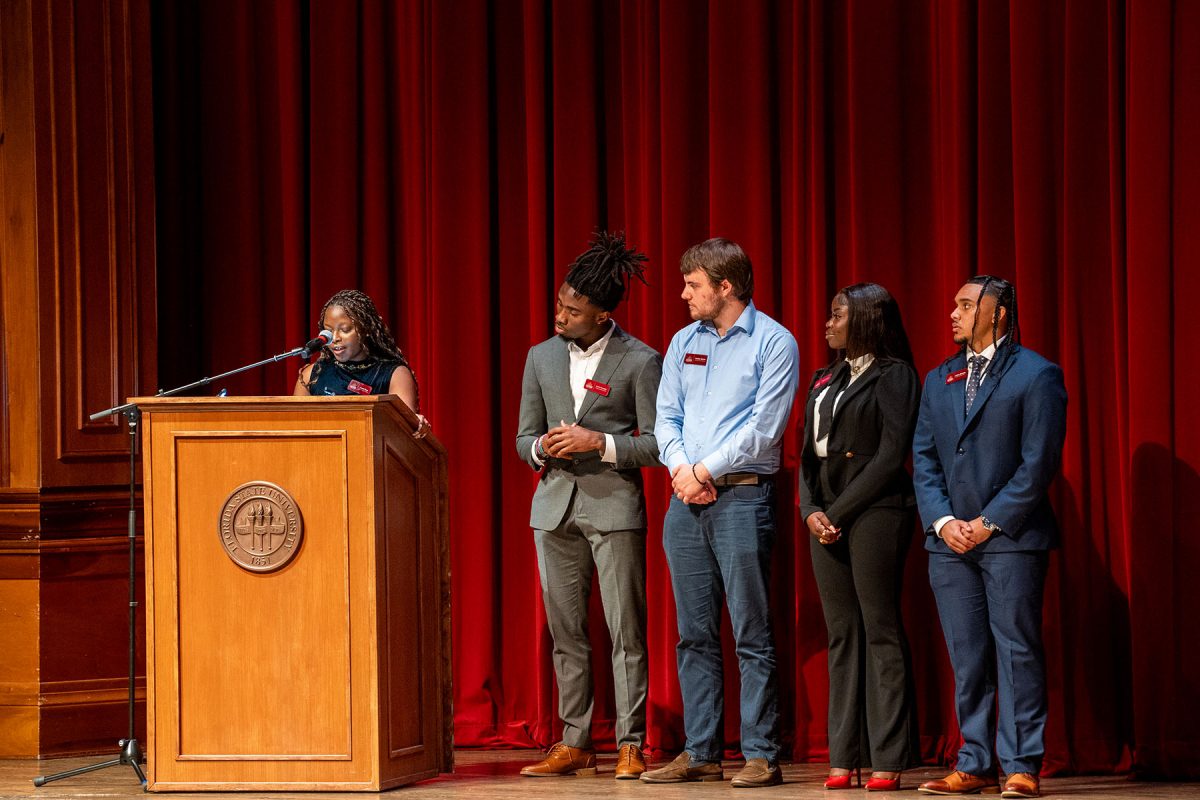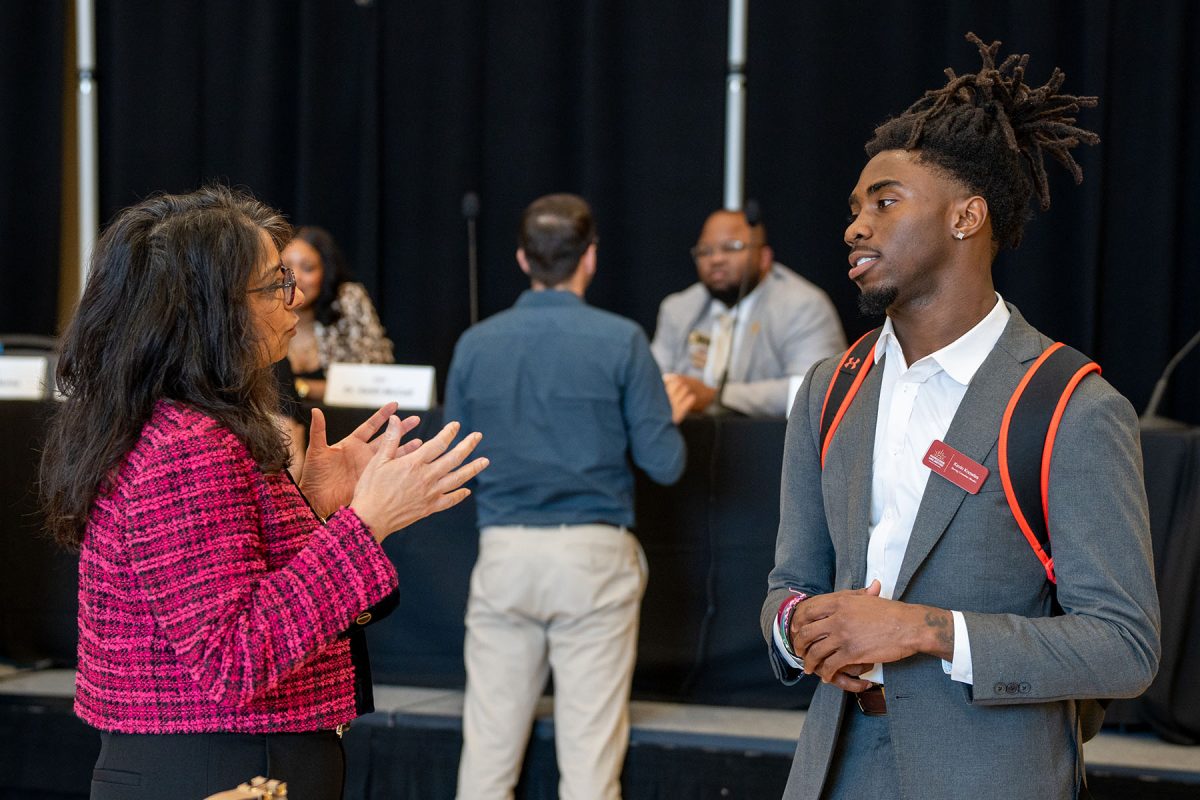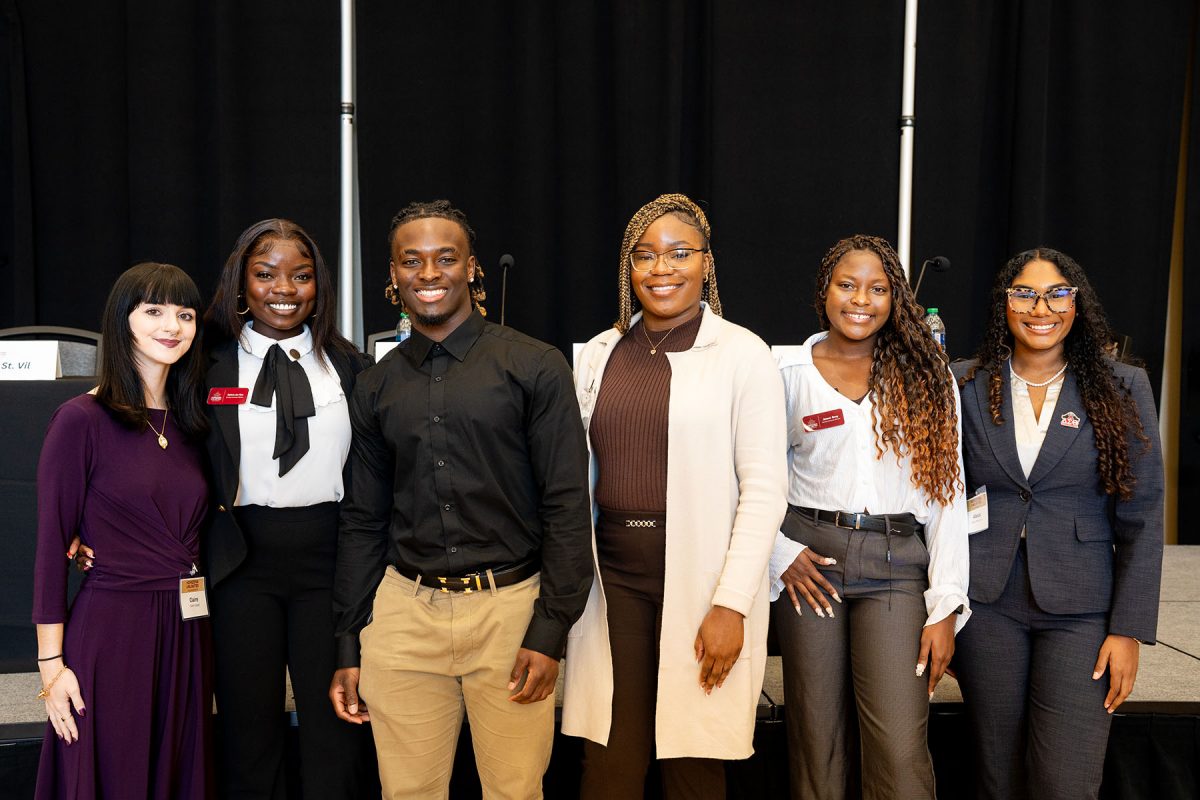PHOTO GALLERY
President Richard McCullough spoke about his own journey as a first-generation student to Florida State University first-generation students at the closing keynote speech of the university’s first Horizons Unlimited Conference on Monday, Feb. 26.
The daylong conference is a part of FSU’s ongoing commitment to first-generation student success and its emphasis on expanding resources for first-generation students. About a quarter of FSU’s undergraduate population identifies as the first in their families to go to college, with the Center for Academic Retention and Enhancement (CARE) offering resources and support to many of those students.
“The Horizons Unlimited Conference is a chance for our students to be able to learn alongside their peers with shared experiences from faculty, staff and alumni who understand and have shared experiences,” said DeOnte Brown, director of CARE and assistant dean of Undergraduate Studies. “It provides the opportunity for first-generation students to learn and grow together while providing the launchpad for future opportunities and success.”
FSU First Lady Dr. Jai Vartikar proposed the conference, which was planned by first-generation students for first-generation students. The steering committee included Joshua Burns, Kheila Chanza, Jenee Gray, Kephtania Jean Hilaire, Amanda Johnson, Kevin Knowles and Justin Mohabir.
“The stories that you heard today show grit, determination and resilience,” Vartikar said. “They also highlighted the incredible power of higher education to open doors, create opportunity and change lives forever.”
The conference offered three main sessions: maximizing the college experience, considering graduate schools, and navigating job searches and career establishment. It also provided networking opportunities with fellow first-generation students, alumni, faculty and university leaders.
Nayah Michel, a participant in the Navigating the Career Journey session and member of CARE’s QUEST Scholars Program said, “What stuck with me was to be bold and put yourself out there, as well as being yourself. Overall, CARE has provided a safe space that has made it easier for me to find and seek out the resources I need.”
Leon County Commissioner Nick Maddox, a first-generation FSU student and former football player, shared some personal reflections of his time on campus before introducing McCullough for his keynote.
“Make sure that you take advantage of every single day you get to spend on this campus because the kid that I was would have never imagined that the young man I was going to be, which will never imagine the man I would become,” Maddox said.
McCullough talked about growing up in Mesquite, Texas, in a family of modest means and how he came to believe in higher education as a pathway to success.
“The one thing I think that was instilled in me from the very beginning was the idea that I should work,” McCullough said. “That work was important.”
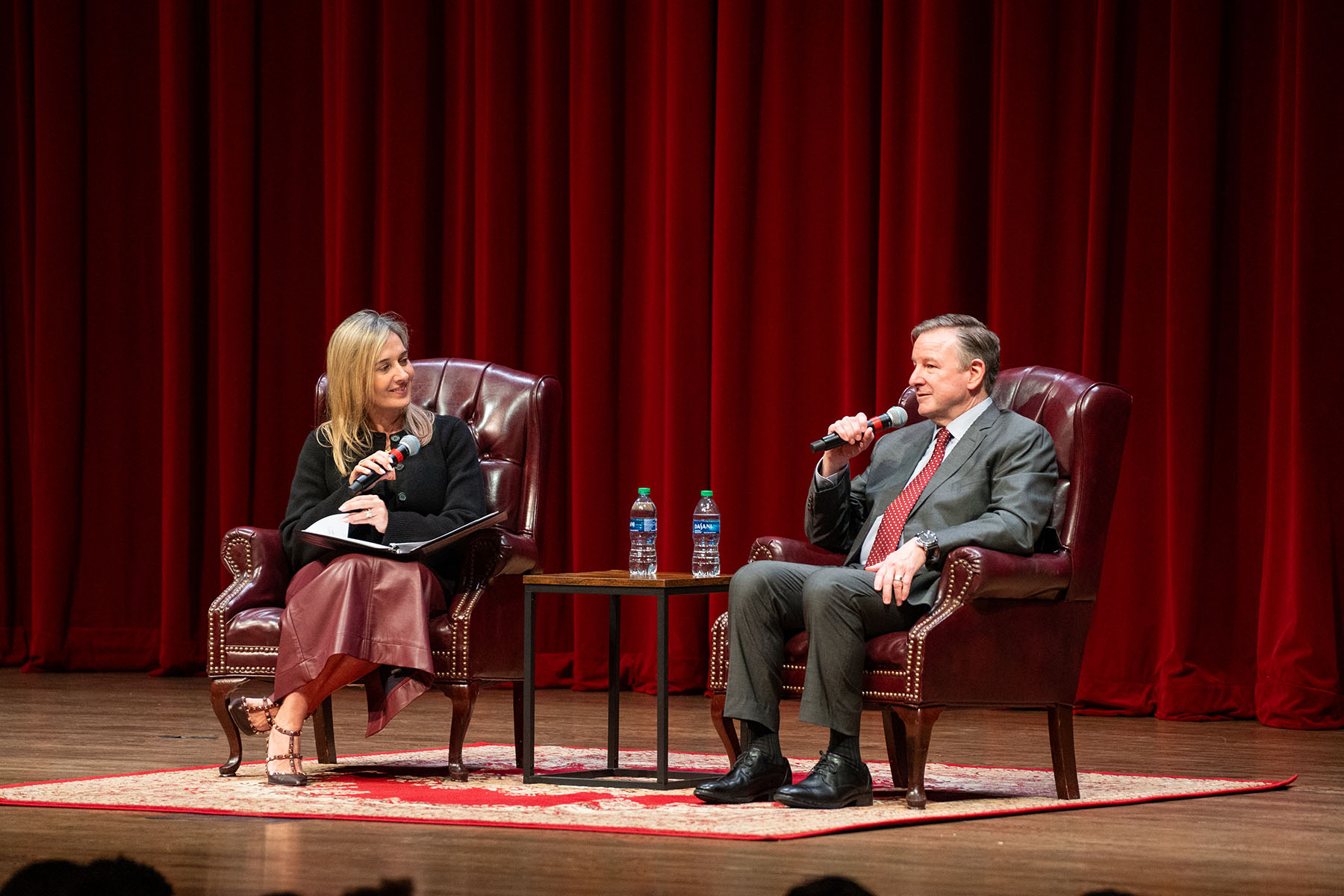
He worked his way through Eastfield Community College before attending UT-Dallas where he majored in chemistry, which inspired his passion for accessibility and affordability in higher education. McCullough went on to earn a Ph.D. in organic chemistry at Johns Hopkins University and serve as a post-doctoral researcher at Columbia University. McCullough was hired as an assistant professor at Carnegie Mellon University and rose through the ranks to become vice president of research before becoming vice provost for research at Harvard University and then FSU’s president in 2021.
McCullough shared three pieces of advice with students:
- Cultivate mentors. “Cultivate mentors because these are people who are going to write recommendation letters for you. These are people who can give you advice — professors and people like us. We want to do that. We want to help you. This is the secret about being in academics. We get more joy out of that than you do by helping you so cultivate mentors because you’re going to need recommendation letters.”
- Be patient. “You’re not going to be promoted to the greatest person in the entire world just because you deserve it. It just doesn’t work that way. You’ve got to work hard. You’ve got to be patient. And, you know, it’s really a marathon, not a sprint. So small steps at a time lead to big, big opportunities.”
- Be kind. “Don’t burn a bridge. Every time I burn a bridge, it always comes back to haunt me. You’re just going to get a lot more in life if you’re kind.
The evening ended with a question-and-answer session between McCullough and FSU Trustee Vivian de las Cuevas-Diaz, an alumna and first-generation student. They discussed topics such as imposter syndrome, the importance of building and using networks, and seeking advice from admired professionals. Like McCullough, de las Cuevas-Diaz emphasized the importance of hard work.
“The one thing I keep on hearing throughout today is hard work. First-generation students may have to work a little harder,” de las Cuevas-Diaz said. “But don’t forget that you will succeed, you will fail, and you will succeed again. Hard work is what gets you somewhere.”
de las Cuevas-Diaz also lauded FSU for its efforts to support students.
“I don’t think you’ll see a program or a president that cares as much to build on what you are doing here today,” she said.
Justin Mohabir, a CARE student and steering committee member for the Horizons Unlimited Conference, agreed.
“It is so unique for Florida State to have a president who’s also a first-generation student,” he said. “It means a lot to see President McCullough as an example, knowing that whatever you set your mind to you can accomplish beyond the adversity you may face along the way.”
CARE serves more than 2,500 students annually, providing preparation, orientation, and academic support programming for students who are among the first in their families to attend college and may face unique challenges in college due to educational or economic circumstances.
“In the past two-and-a-half years, we have seen tremendous growth in terms of the programs and services Florida State University provides for our first-generation students,” Brown said. “We’re excited to embark on this new journey as we think about our role in shaping support for first generation students broadly across the country and across the higher ed landscape.”
In late 2023, Florida State University was designated a First Scholars Institution by the Center for First-generation Student Success, an initiative of the National Association of Student Personnel Administrators (NASPA) and the Suder Foundation that helps higher education institutions transform experiences and outcomes for first-generation students.
“With all of these talks and discussions today, I’m learning everything that goes into making sure I’m as successful as I can be right now to reach greater success in the future,” said Genessa Dulcio, a freshman civil engineering major. “Sometimes people don’t understand the full scope of the issues you may be facing and knowing that these people have gone through the exact same thing and they’re still able to reach success is really empowering.”
For more information, visit care.fsu.edu.





